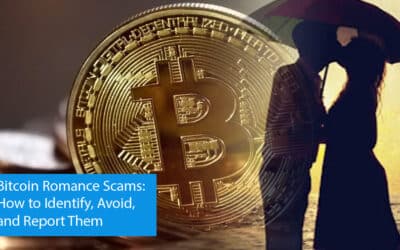CYBERSECURITY FRAUD
CYBERSECURITY FRAUD
The United States Department of Justice announced the new Civil Cyber-Fraud Initiative, a cybersecurity enforcement program that relies on the federal False Claims Act (FCA) to hold entities accountable for failing to follow cybersecurity regulations. This new provision makes it easier for whistleblowers, who are often government contractors or federal employees in cybersecurity cases, to initiate qui tam cases against violators. The new program sends a message to whistleblowers that they can expect the government’s support for reporting companies who defraud government programs.
Below is what you need to know about the FCA, how it relates to cybersecurity matters, and how these new regulations impact whistleblowers.
WHAT IS THE FCA?
The FCA is a law that allows the federal government and private citizens to pursue litigation against companies that defraud the government. While the FCA applies to many industries, several principles require companies to abide by cybersecurity standards to receive federal government money through grants or contracts.
Most FCA cybersecurity regulations require companies to take certain precautions to increase the resiliency of critical networks and systems. Because many government contractors work with sensitive data, maintaining consumer protection and market integrity are essential. The proliferation of cyberattacks has made it necessary for companies to explore ways to deliver critical services safely amid evolving threats.
WHAT IS AN EXAMPLE OF AN FCA VIOLATION?
The FCA outlines the actions that can require companies to pay fines to the government. While the regulations are broad, falsifying information or recklessly disregarding accurate data are examples of improper actions. Any entity that violates the law is a potential defendant in an FCA suit.
Most successful whistleblower cases have evidence that the misconduct caused the government to suffer a loss. The misconduct can take many forms, including:
- Charging the government too much for products or services
- Delivering a product or service that is substandard
- Evading or underpaying the government on monetary obligations other than taxes
- Failing to return an overpayment received from the government
The FCA allows the government to sue violators on its own, while the qui tam rule enables private citizens to pursue actions on behalf of the government. A large majority of FCA fraud lawsuits come from qui tam claims.
It should be noted that the FCA protects whistleblowers from retaliation or discrimination.
WHAT IS THE CIVIL CYBER FRAUD INITIATIVE?
Despite the FCA, some entities have failed to implement appropriate cybersecurity measures or report harmful cyber incidents. To deter this behavior, the new Civil Cyber-Fraud Initiative uses the FCA to penalize grant recipients and contractors that:
- Intentionally delivering substandard cyber services or products
- Deliberately misrepresenting or concealing cyber practices
- Knowingly failing to monitor and report cyber breaches
The enforcement program is designed to increase the number of qui tam whistleblower cases by making it easier to report incidents.
WHAT CAN I DO IF I KNOW ABOUT AN FCA VIOLATION INVOLVING CYBERSECURITY VIOLATIONS?
Several options exist if you want to report a company that has committed fraud against the government. First, you can report the misconduct to the Inspector General on behalf of the agency that has been defrauded. Second, you can notify the Federal Bureau of Investigation. Your last option is to file a qui tam case in federal court.
Filing a qui tam FCA action based is a complicated endeavor and you must follow many crucial procedural requirements when filing an FCA action suit. For instance, all complaints must be filed under seal. As such, most whistleblowers seek counsel before proceeding with the claim.
There are many benefits to hiring an experienced attorney to assist with a whistleblower case. First, an attorney can help protect your anonymity, if desired, and safeguard you against any retaliation. Also, gathering evidence with an attorney’s help may increase the likelihood of recovering misused funds.
WHAT ARE THE REWARDS FOR WHISTLEBLOWERS?
You may be eligible for financial compensation if your qui tam lawsuit results in a monetary recovery for the government. You may receive a portion of the recovered funds depending on the case. You may get up to 25% of the money if the government intervenes in the case. You can receive up to 30% of the funds recovered if the government does not intervene.
Keep in mind that the amount the whistleblower receives depends on numerous factors, including the nature of the case, the quality of the evidence gathered, and the amount of assistance provided by the whistleblower.
WORK WITH A WHISTLEBLOWER LAWYER
Contact us at Piacentile, Stefanowski & Associates LLP, known as Whistleblowers International, if you have information about FCA cybersecurity fraud. We evaluate your evidence confidentially and free of charge. We do not charge clients anything unless we secure them a monetary reward, and even then, it is based on a percentage of their recovery.
Contact Us Today
The information submitted will be submitted to the law firm of Piacentile & Associates LLP d/b/a Whistleblowers International. This communication does not create an attorney-client relationship and is submitted only for the purpose of evaluating your claim to see if this is something we are able to help you with. By contacting us, you certify that you are a potential client making a bona fide inquiry about obtaining legal services to address a potential whistleblowing legal claim. Past results do not guarantee future outcomes. While this submission does not create an attorney-client relationship, all information submitted will be kept strictly confidential per legal ethics rules since this information is submitted in contemplation of a potential attorney-client relationship. No attorney-client relationship is formed until it is determined after evaluation with you that this is something we can take on and a retainer agreement is signed by you and the law firm of Piacentile & Associates LLP d/b/a Whistleblowers International. Please also understand that by submitting your information, there is no guarantee that we will contact you in response, as at any given time, there are only a limited number of claims we are able to take on and pursue. If we do not contact you within 3-business days of your submission, please reach out to another whistleblower law firm if you are interested in pursuing your matter.
Our Areas of Practice
HEALTHCARE FRAUD
Securities / Derivatives Fraud
Fraud Against the Government
Tax Fraud
Cryptocurrencies Fraud
Defense Contractor Fraud
Money Laundering
Foreign Corrupt Practices Act
DR. JOE’S CASES HAVE BEEN FEATURED IN:





COMMITTED TO GLOBAL TRANSPARENCY
Unraveling the World of White Collar Crime: From Ponzi Schemes to Securities Fraud
White collar crime, a term often associated with financial fraud and sophisticated schemes, has evolved into a complex and pervasive issue in today's society. Unlike blue collar crime, which typically involves direct physical actions such as theft or assault, white...
Bitcoin Romance Scams: How to Identify, Avoid, and Report Them
1. What Are Bitcoin Romance Scams? Bitcoin romance scams occur when a scammer establishes a fake online relationship with the intent to steal cryptocurrency from the victim. These scammers typically operate on dating apps, social media platforms, or even through...
Meme Coin Scams: How to Spot and Avoid Them
Introduction: Meme coins, often inspired by internet jokes or popular culture references, have gained massive popularity in the cryptocurrency world. Coins like Dogecoin and Shiba Inu have made headlines, leading to the creation of countless other meme coins. However,...
Bitcoin Scams: How to Stay Safe and Protect Your Investments
Bitcoin and other cryptocurrencies have opened up a new world of decentralized finance, offering greater control over your wealth. However, with this new frontier comes the increased risk of scams and fraud. This guide will walk you through the various types of...
Understanding Pump-and-Dump Scams: How to Protect Yourself from Stock Market Manipulation
Pump-and-dump scams are a type of securities fraud that involve artificially inflating the price of a stock through misleading or false information, then selling off shares at the inflated price. This practice, often conducted in a rapid and coordinated manner, leaves...
Pyramid Schemes and the Importance of Whistleblowing
Understanding Pyramid Schemes and the Importance of Whistleblowing What is a Pyramid Scheme? A pyramid scheme is a deceptive business model that lures participants with promises of high returns on investments or profits primarily through recruiting others rather than...
Understanding Affinity Fraud: Protecting Yourself and Your Community
Affinity fraud is a particularly insidious type of investment scam that preys on the trust and close-knit nature of specific communities. These frauds exploit the bonds within religious, ethnic, professional, or social groups to deceive members into investing in...
Understanding Investment Fraud and How to Find the Right Lawyer
Investment fraud is an insidious and often devastating crime that preys on the trust and hopes of individuals and organizations. It involves deliberately deceiving investors by providing false or misleading information about an investment, often leading to significant...
The information on this website is for general information purposes only. Nothing on this site should be taken as legal advice for any individual case or situation.
We do not accept cases in all jurisdictions. No representation is made that the quality of the legal services to be performed is greater than the quality of legal services performed by other lawyers. Prior results do not guarantee a similar outcome. This information is not intended to create, and receipt or viewing does not constitute, an attorney-client relationship. While we will treat any information provided as privileged and confidential, you should understand that when you provide information about a potential case to us, we do not become your attorneys. We do not represent you until we have agreed to do so and a retainer has been signed by both of us. This information is not intended to create, and receipt or viewing does not constitute, an attorney-client relationship. This website may be considered attorney advertising in some states.
© 2024 All Rights Reserved.




